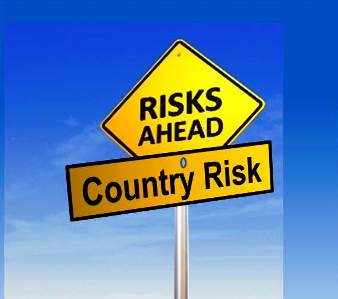 Belarus – stirring up the potash market;
Belarus – stirring up the potash market;- Middle East – alarming developments in Yemen that open up a new front in the Sunni-Shia confrontation;
- Nigeria – on the eve of potentially troubled elections;
- Tajikistan – FX crisis made in Russia;
- Ukraine – financial help may have to wait.
AUSTRALIA: The coming weekend may pose a new political challenge for the embattled PM Abbott, to be followed by an even larger one with the budget in May. If he survives, he will do so with considerably diminished clout and exposed to further troubles down the road.
FRANCE: The outcome of the impending second round of local elections will provide a measure of the ruling Socialists’ loss of support and the advances made by the UPM and the resurgent far-Right National Front. This may give the first early pointers of what to expect happen in the presidential elections in 2017.
HONG KONG: While the US Congress is trying to put pressure on China to ensure the preservation of autonomy and human rights in the Special Administrative Region, Beijing is not about to yield on how the next leader will be elected. Meanwhile, protests are getting louder accusing visitors from the mainland of doing more damage than good.
KOREA (SOUTH): The CB had good reason to join the bandwagon in the direction of looser monetary policies, as the economy is now growing at its slowest pace in more than two years. This underscores the country’s dependence on China, its main trading partner, at a time when being closely allied with the PRC as well as the US is not easy.
NORWAY: The economy, one of the world’s most oil-dependent, could not help but be hit hard by the collapse of petroleum prices. It is still a long way from a crisis, though. The nation’s wealth fund provides a formidable cushion. Low interest rates will help to hold the krone down.
PAKISTAN: It is becoming increasingly clear that the massacre of last December was a turning point of sorts, convincing many doubters that Islamist militants pose a threat to this country’s very existence and prompting the armed forces to take the war on terror seriously. At the same time, the economy is now on a strongly improving trend.
SAUDI ARABIA: Economically, the country can hold out for years with oil prices where they are now. Geopolitical issues are more pressing, both at home and abroad, where the new US weakness in the Middle East and the spreading tentacles of Iran need to be dealt with.
TURKEY: President Erdogan and Central Bank Governor Erdem Basci remain worlds apart in their views of interest rates and Central Bank independence, to the detriment of the lira’s exchange market performance. Meanwhile, Mr. Erdogan is pushing on with efforts to turn Turkey into a police state and Ankara’s links to NATO are becoming more tenuous.
This page is provided by S.J. Rundt & Associates, Inc., specialists in country risk assessment, consultants to multinational companies & banks, and publishers of Rundt’s World Business Intelligence and The Financial Executive’s Country Risk Alert. To order a subscription or individual issues of these reports, in print or by e-mail, contact S.J. Rundt & Associates, P.O. Box 1572, Montclair, NJ 07042; Telephone: (973) 731-7502, Fax: (973) 731-7503; E-mail: info@rundtsintelligence.com; Web site: www.rundtsintelligence.com.























